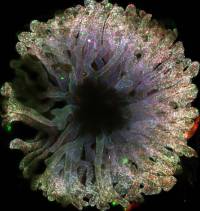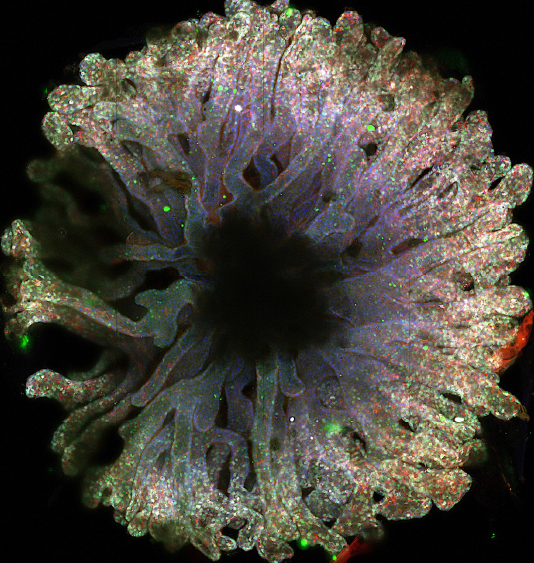USC Stem Cell scientists make big progress in building mini-kidneys

Organoid recapitulating an adult kidney’s collecting duct system (Image by Zipeng Zeng/Li Lab)
By Cristy Lytal
A team of scientists at the Keck School of Medicine of USC has created what could be a key building block for assembling a synthetic kidney. In a new study in Nature Communications, Zhongwei Li and his colleagues describe how they can generate rudimentary kidney structures, known as organoids, that resemble the collecting duct system that helps maintain the body’s fluid and pH balance by concentrating and transporting urine.
“Our progress in creating new types of kidney organoids provides powerful tools for not only understanding development and disease, but also finding new treatments and regenerative approaches for patients,” said Li, the study’s corresponding author and an assistant professor of medicine, and of stem cell biology and regenerative medicine.
The first authors of the study, PhD student Zipeng Zeng and postdoc Biao Huang, and the team started with a population of what are known as ureteric bud progenitor cells, or UPCs, that play an important role in early kidney development. Using first mouse and then human UPCs, the scientists were able to develop cocktails of molecules that encourage the cells to form organoids resembling uretic buds—the branching tubes that eventually give rise to the collecting duct system. The scientists also succeeded in finding a different cocktail to induce human stem cells to develop into ureteric bud organoids.
An additional molecular cocktail pushed ureteric bud organoids—grown from either mouse UPCs or human stem cells—to reliably develop into even more mature and complex collecting duct organoids.
The human and mouse ureteric bud organoids can also be genetically engineered to harbor mutations that cause disease in patients, providing better models for understanding kidney problems, as well as for screening potential therapeutic drugs.
Read the rest of the story, which first appeared on the Keck School of Medicine (KSOM) News website.
For More Info
Please contact Bonnie Phan Wolfe, Licensing Associate, at bonniep@usc.edu if you would like to learn more or license this technology.
